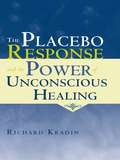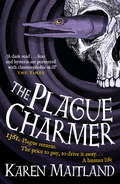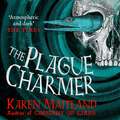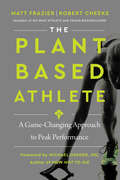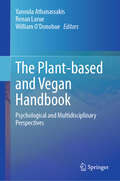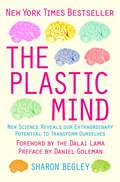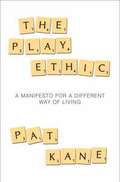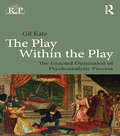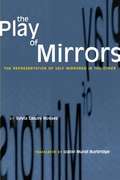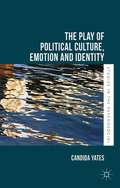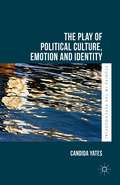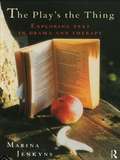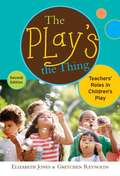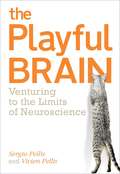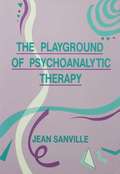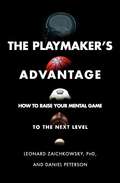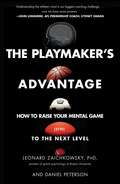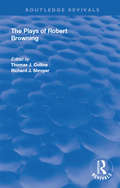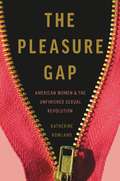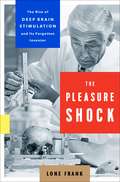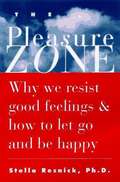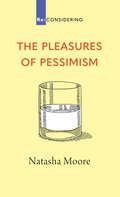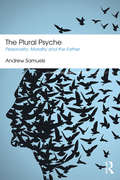- Table View
- List View
The Placebo Response and the Power of Unconscious Healing
by Richard KradinPlacebo responses are automatic and unconscious and cannot be predicted based on conscious volition. Instead, they reflect complex interactions between the innate reward system of the nervous system and encoded procedural memories and imaginal fantasies. The placebo response contributes inextricably to virtually all therapeutic effects, varies in potency, and likely exhibits its own pathologies. The Placebo Response further considers that the critical elements required to provoke placebo responses overlap substantially with what most current psychotherapies consider to be therapeutic, i.e. an interpersonal dynamic rooted in concern, trust and empathy. The potential importance of training caregivers in how to optimize placebo responses is considered a crucial feature of both the art and science of care-giving.
The Plague Charmer: A gripping story of dark motives, love and survival in times of plague
by Karen Maitland1361. An unlucky thirteen years after the Black Death, plague returns to England.'Fear and hysteria are portrayed with claustrophobic skill' THE TIMES'Dark and enthralling... with an unexpected hero' JULIE COHENFrom the bestselling author of Company of Liars, Karen Maitland, The Plague Charmer is a darkly compelling novel following a stranger who arrives in an isolated community in the grips of a medieval pandemic. When the sickness reaches the village of Porlock Weir, who stands to lose the most? And who will seize this moment for their own dark ends?The dwarf who talks in riddles? The mother who fears for her children? The wild woman from the sea? Or two lost boys, far away from home?PESTILENCE IS IN THE AIR. BUT SOMETHING DARKER LURKS IN THE DEPTHS. Why readers are gripped by The Plague Charmer'Its horrors are vividly told but with an underlying sense of human resilience and hope''A real page turner''The best and worst of human behaviour in troubled times''Poignant, shocking and haunting''It was so easy to be drawn into this world...'
The Plague Charmer: A gripping story of dark motives, love and survival in times of plague
by Karen Maitland'A dark read... fear and hysteria are portrayed with claustrophobic skill' The Times The Plague Charmer, by Karen Maitland, Queen of the Dark Ages and bestselling author of Company of Liars, will chill and delight fans of Ken Follett's A Column of Fire and The Witchfinder's Sister in equal measure.1361. An unlucky thirteen years after the Black Death, plague returns to England.When the sickness spreads from city to village, who stands to lose the most? And who will seize this moment for their own dark ends?The dwarf who talks in riddles?The mother who fears for her children?The wild woman from the sea?Or two lost boys, far away from home?Pestilence is in the air. But something much darker lurks in the depths.
The Plant-Based Athlete: A Game-Changing Approach to Peak Performance
by Robert Cheeke Matt FrazierThe only research-based guide for connecting a plant-based diet with peak athletic performance, featuring interviews with professional athletes who've made the switch from meat to plants.The Plant-Based Athlete by Matt Frazier and Robert Cheeke reveals the incontrovertible proof that the human body does not need meat, eggs, or dairy to be strong. Instead, research shows that a consciously calibrated plant-based diet offers the greatest possible recovery times, cell oxidation, injury prevention, and restorative sleep, and allows athletes to train more effectively, with better results.However, committing to a plant-based diet as an elite athlete, first-time marathoner, or weekend warrior isn't as simple as swapping vegetables for meat. Even the slightest food adjustments can impact performance. That's why Matt Frazier, founder of No Meat Athlete, and Robert Cheeke, founder of Vegan Bodybuilding, wrote this groundbreaking book, to guide those interested in making this important shift in how to do so with the best, most transformative results.The Plant-Based Athlete offers readers:A persuasive body of evidence for adopting a plant-based lifestyle, with key information about how macronutrients, micronutrients, and calories fuel a body running on plant foodsAn entire chapter devoted to protein - why plant sources of protein are preferable over meat, and how plant protein can be used to increase strength, muscle mass, and power60+ delicious and nutritious plant-based recipes, including Veggie Burger Patties, Garden Meatballs, Summer Pasta Salad, Vegan Mac & Cheese, French Toast, Acai Bowl, and a High-Energy SmoothieInsights from winning plant-based athletes in nearly every sport including champion ultrarunners Rich Roll and Scott Jurek; former NFL player David Carter; champion boxers Yuri Foreman, Unsal Arik, Cam Awesome, and Vanessa Espinoza; and Olympic-level swimmers, cyclists, figure skaters, sprinters, and more.A Day in the Life of a Plant-Based Athlete - examples of what, when, and how different athletes eat to fuel their varied workoutsAn instant classic and mainstay on health and fitness shelves everywhere, The Plant-Based Athlete is the ultimate invitation for joining the growing community of athletes who use plants to power their workouts and their every day.
The Plant-based and Vegan Handbook: Psychological and Multidisciplinary Perspectives
by Yanoula Athanassakis William O’Donohue Renan LarueThe Plant-based and Vegan Handbook is the first of its kind to bring together interlocking – and sometimes conflicting – perspectives focused on veganism and plant-based living. As an interdisciplinary volume the noted contributors are from the fields of medicine, psychiatry, environmental studies, sociology, marine ecology, philosophy, agriculture, psychology, animal studies, religion, economics, literature, business, and law. Despite a range of individual preferences, these authors advance a scientific argument for a societal move away from the current model of human and nonhuman animal relationships. In our Anthropocene era experts not only debate about how human beings will , survive on Earth, but more particularly are more concerned with how they will thrive. As evidenced by the authors in this collection, it will involve a reconsideration of the way our species relates to the planet and to other species. This volume can serve as a critical reference work, especially for students and scholars working in both emerging and established fields such as psychology, medicine, animal studies, food studies, environmental studies, philosophy, animal ethics, and marine ecology.
The Plastic Mind
by Sharon BegleyFor decades, the conventional wisdom of neuroscience held that the hardware of the brain is fixed - that we are stuck with what we were born with. But recent pioneering experiments in neuroplasticity reveal that the brain is capable not only of altering its structure but also of generating new neurons, even into old age. The brain can adapt, heal, renew itself after trauma and compensate for disability. In this groundbreaking book, highly respected science writer Sharon Begley documents how this fundamental paradigm shift is transforming both our understanding of the human mind and our approach to deep-seated emotional, cognitive and behavioural problems. These breakthroughs show that it is possible to reset our happiness meter, regain the use of limbs disabled by stroke, train the mind to break cycles of depression and OCD and reverse age-related changes in the brain.
The Plateau Effect: Getting from Stuck to Success
by Bob Sullivan Hugh ThompsonThe Plateau Effect is a powerful law of nature that affects everyone. Learn to identify plateaus and break through any stagnancy in your life-- from diet and exercise, to work, to relationships. <P><P> The Plateau Effect shows how athletes, scientists, therapists, companies, and musicians around the world are learning to break through their plateaus--to turn off the forces that cause people to "get used to" things--and turn on human potential and happiness in ways that seemed impossible. The book identifies three key flattening forces that generate plateaus, two principles to guide readers in engineering a plateau's destruction, and three actions to take to achieve peak behavior. It helps us to stop wasting time on things that are no longer of value and to focus on the things that leverage our time and energy in spectacular ways. <P> Anything you want to do better--play guitar, make friends, communicate with your children, run a business--you can accomplish faster by understanding the plateau effect.
The Play Ethic: A Manifesto for a Different Way of Living
by Pat KaneThe Play Ethic explores the real meaning of play and shows how a more playful society would revolutionize and liberate our daily lives. Using wide and varied sources from the Enlightenment to Eminem, Socrates to Chaos theory, Kierkegaard to Karaoke, this book shows how play is fundamental to both society and to the individual, and how the work ethic that has dominated the last three centuries is ill-equipped to deal with the modern world.
The Play Within the Play: The Enacted Dimension Of Psychoanalytic Process (Relational Perspectives Book Series)
by Gil KatzIn The Play within the Play: The Enacted Dimension of Psychoanalytic Process Gil Katz presents and illustrates the "enacted dimension of psychoanalytic process." He clarifies that enactment is not simply an overt event but an unconscious, continuously evolving, dynamically meaningful process. Using clinical examples, including several extended case reports, Gil Katz demonstrates how in all treatments, a new version of the patient’s early conflicts, traumas, and formative object relationships is inevitably created, without awareness or intent, in the here-and-now of the analytic dyad. Within the enacted dimension, repressed or dissociated aspects of the patient’s past are not just remembered, they are re-lived. Katz shows how, when the enacted dimension becomes conscious, it forms the basis for genuine and transforming experiential insight.
The Play of Mirrors: The Representation of Self Mirrored in the Other
by Caiuby Novaes SylviaFocusing on the Bororo people of west-central Brazil, this book addresses the construction of self-identity through interethnic interaction. By presenting the images the Bororo have of themselves as well as the images of others who have interacted with them, Brazilian anthropologist Sylvia Caiuby Novaes argues convincingly that Bororo self-images are constructed with the aid of a peculiar looking-glass--it is in the images of others that they see themselves.<P><P>Incorporating contributions from psychology, psychoanalysis, linguistics, and semiotics, Play of Mirrors focuses on symbols, images, discourse, and meanings rather than solely on the problem of acculturation. It thus reflects the thinking of a new generation of Brazilian anthropologists who have shifted their focus from native communities as isolated entities to an examination of their embeddedness within broader national and international arenas.
The Play of Political Culture, Emotion and Identity (Studies in the Psychosocial)
by Candida YatesOffering a uniquely 'psycho-cultural' take on the emotional dynamics of UK political culture this book uses theories and research in psychoanalysis, cultural and media studies and political sociology. It explores the cultural and emotional processes that shape our relationship to politics in a media age, referencing Joanna Lumley to Nigel Farage.
The Play of Political Culture, Emotion and Identity (Studies in the Psychosocial)
by Candida YatesOffering a uniquely 'psycho-cultural' take on the emotional dynamics of UK political culture this book uses theories and research in psychoanalysis, cultural and media studies and political sociology. It explores the cultural and emotional processes that shape our relationship to politics in a media age, referencing Joanna Lumley to Nigel Farage.
The Play's the Thing: Exploring Text in Drama and Therapy
by Marina JenkynsMarina Jenkyns conveys the excitement of working therapeutically with dramatic text though a personal and highly readable analysis of plays from a variety of periods and cultures. Influenced by the theories of Winnicott and Klein she lays bare the dynamics of relationships and plots to show how they can be used to help us understand our own relationships to each other and the world around us. This highly innovative text integrates therapeutic practice and literature in an engaging and challenging book which will hold the attention of a wide audience. This book contains new ideas for dramatherapy practice, theatre directors and teachers.
The Play's the Thing: Teachers' Roles in Children's Play (Early Childhood Education Series) (Second Edition)
by Gretchen Reynolds Elizabeth JonesResponding to current debates on the place of play in schools, the authors have extensively revised their groundbreaking book. They explain how and why play is a critical part of children's development, as well as the central role adults have to promote it. This classic textbook and popular practitioner resource offers systematic descriptions and analyses of the different roles a teacher adopts to support play, including those of stage manager, mediator, player, scribe, assessor, communicator, and planner. This new edition has been expanded to include significant developments in the broadening landscape of early learning and care, such as assessment, diversity and culture, intentional teaching, inquiry, and the construction of knowledge. New for the Second Edition are: additional theories on the relationship of teachers and children's play: current issues from media content, consumer culture, and environmental concerns; recent brain development research; how to use digital technology to make children's play visible; and more.
The Playful Brain: Venturing to the Limits of Neuroscience
by Sergio Pellis Vivien PellisFor centuries the phenomenon of play has perplexed scientists across the board. Studies by biologists, psychologists, neuroscientists, anthropologists, and educators have excited keen debate and contention, producing diverse opinions that pose play as both a childish waste of time and a necessary tool in the development of a healthy fulfilled individual. But so far the lack of empirical research has meant that questions about functionality of play, its origins, and variety amongst different species remain unanswered. In this fully integrated study Sergio and Vivien Pellis address these questions synthesizing three decades of empirical research to create a truly seminal study into the whys and wherefores of play. With implications for so many disciplines, the Pellis' original research and novel findings will not only expand our current knowledge of play behaviour, but will inspire change and progress from the laboratory to the playground. Professor Sergio Pellis and Associate Professor Vivien Pellis both work at the Canadian Centre for Behavioural Neuroscience at the University of Lethbridge, Alberta, Canada.
The Playground of Psychoanalytic Therapy
by Jean B. SanvilleBuilding on the foundations of the "independent tradition" of British object relations theory and modern infancy research, Sanville proffers a new understanding of the role of play in the clinical situation. She attends especially to the therapeutic situation as a safe playground, the therapist's playful engagement of the patient, and the patient's emergent ability to embrace playfully the liberating possibilities of psychoanalytic therapy.
The Playmaker's Advantage: How to Raise Your Mental Game to the Next Level
by Leonard Zaichkowsky Daniel PetersonDiscover how to improve your mental game—the next frontier in sports training—no matter your age or experience and become the Playmaker or the decisive general on the court or field.Coaches search for it. Parents dream of it. Fans love it. Athletes want it. The Playmaker on any sports team possesses it: an elusive, intangible quality combining anticipation, perception, and decision-making skills. This quality raises their game above the competition and allows them to pass when no one else can, anticipate the movement of opponents, and avoid costly mental mistakes, thus holding the team together. Using today’s technology and tools, it is now possible to understand, assess, and train this sixth sense rather than just hope it magically appears. Now, for the first time, cognitive science research is revealing the secrets of the Playmaker’s keen sense of awareness. Just as tests of speed, strength, and agility have provided a baseline of physiological biomarkers, coaches can now capture cognitive metrics including attention, pattern recognition, anticipation, and the ability to take quick, decisive action during the chaos of competition. The Playmaker’s Advantage is a groundbreaking book that will educate athletes of all ages about this essential creative capability in an accessible, easy to understand method.
The Playmaker's Advantage: How to Raise Your Mental Game to the Next Level
by Leonard Zaichkowsky Daniel PetersonDiscover the next frontier in sports training—improving your mental game, no matter your age or experience—and how to become the Playmaker, both in your professional and personal life.Coaches search for it. Parents dream of it. Fans love it. Athletes want it. The playmaker on any sports team possesses it: an elusive, intangible quality combining anticipation, perception, and decision-making skills. This quality raises their game above the competition and allows them to pass when no one else can, anticipate the movement of opponents, avoid costly mental mistakes, and ultimately, hold the team together. Now, for the first time, cognitive science research is revealing the secrets of the playmaker’s keen sense of awareness. Just as tests of speed, strength, and agility have provided a baseline of physiological biomarkers, coaches can now capture cognitive metrics including attention, pattern recognition, anticipation, and the ability to take quick, decisive action during the chaos of competition. The Playmaker’s Advantage is a groundbreaking book that will educate athletes of all ages about this essential creative capability in an accessible, easy to understand method.
The Plays of Robert Browning (Routledge Revivals #No. 14)
by Thomas J. Collins Richard J. ShroyerPublished in 1988, and including all seven of Robert Browning’s dramas, Collins and Shroyer introduce this convenient and reliable reading text by discussing the plays with a history of criticism and giving insightful notes on each individual play in the book.
The Pleasure Gap: American Women and the Unfinished Sexual Revolution
by Katherine RowlandAmerican culture is more sexually liberal than ever. But compared to men, women's sexual pleasure has not grown: Up to 40 percent of American women experience the sexual malaise clinically known as low sexual desire. Between this low desire, muted pleasure, and experiencing sex in terms of labor rather than of lust, women by the millions are dissatisfied with their erotic lives. For too long, this deficit has been explained in terms of women's biology, stress, and age. In The Pleasure Gap, Katherine Rowland rejects the idea that women should settle for diminished pleasure; instead, she argues women should take inequality in the bedroom as seriously as we take it in the workplace and understand its causes and effects. Drawing on extensive research and interviews with more than one hundred women and dozens of sexual health professionals, Rowland shows that the pleasure gap is neither medical malady nor psychological condition but rather a result of our culture's troubled relationship with women's sexual expression. This provocative exploration of modern sexuality makes a case for closing the gap for good.
The Pleasure Shock: The Rise of Deep Brain Stimulation and Its Forgotten Inventor
by Lone FrankThe electrifying, forgotten history of Robert Heath's brain pacemaker, investigating the origins and ethics of one of today's most promising medical breakthroughs: deep brain stimulationThe technology invented by psychiatrist Robert G. Heath at Tulane University in the 1950s and '60s has been described as one of "the most controversial yet largely undocumented experiments in US history"--controversial to us because Heath's research subjects included incarcerated convicts and gay men who wished to be "cured" of their sexual preference; controversial in its day because his work was allegedly part of MKUltra, the CIA's notorious "mind control" project. As a result, Heath's cutting-edge research and legacy were put under lock and key, buried in Tulane's archives. The ethical issues raised by his work have also been buried: This very same experimental treatment is becoming mainstream practice in modern psychiatry for everything from schizophrenia, anorexia, and compulsive behavior to depression, aggression, anxiety, and even drug and alcohol addiction.In the first book to tell the full story, the award-winning science writer Lone Frank has uncovered lost documents and accounts of Heath's pioneering efforts. She has tracked down surviving colleagues and patients. And she has delved into the current embrace of deep brain stimulation by scientists and patients alike. What has changed? Why do we today unquestioningly embrace this technology as a cure? How do we decide what is a disease of the brain to be cured and what should be allowed to remain unprobed and unprodded? The Pleasure Shock weaves together biography, neuroscience, psychology, the history of science, and medical ethics to explore our views of the mind and the self. How do we decide whether changes to the brain are acceptable therapy or are simply bias and bigotry?
The Pleasure Zone: Why We Resist Good Feelings and How to Let Go and Be Happy
by Stella Resnick"When you are inspired by good feelings, there's no end to your energy." So says Dr. Stella Resnick, who has been concerned about how to help people stop focusing on what's wrong in their lives and start noticing what's right since 1978 when she wrote an article for New Age magazine that turned the therapy world on its ear. Now she has* distilled her years of work and collected extensive corroborative research to uncover the root of unhappiness-pleasure resistance. When people don't fully enjoy their lives and loves, it is usually because they have a fixed ceiling of how much pleasure they can tolerate. "There is an enormous untapped potential for pleasure in every one of us that has yet to be fully explored," she writes. While writers including Paul Pearsall, Deepak Chopra, Bernie Siegel, and Joan Borysenko have recently identified the benefits of pleasure, to a large extent they have been concerned with positive mental attitudes and visualizations. Dr. Resnick advances the exploration of pleasure further by linking optimism, physical health, emotional fulfillment in love, deeply gratifying sex, and positive aging to our ability to fully enjoy eight core pleasures. These are: primal pleasure, pain relief, the elemental pleasures of play and humor, and mental, emotional, sensual, sexual, and spiritual pleasure. In this ground-breaking work, Dr. Resnick discusses each core pleasure, pointing out subtle and not so subtle ways we deny ourselves and how each core pleasure is relevant to our health, emotional well-being, and interpersonal relationships. Complete with inspiring stories of people who have learned to reclaim pleasures they had cut themselves off from, each chapter concludes with a set of simple personal experiments designed to aid readers in gaining skill at enjoying that pleasure more completely. The Pleasure Zone is for anyone wanting to maintain a lifestyle based on being drawn rather than driven, and on fully celebrating all the pleasures of a lifetime.
The Pleasures of Pessimism (Re: CONSIDERING)
by Natasha MooreRe:CONSIDERING invites you to look at what’s familiar from an unfamiliar angle. To consider how we consider things – and how to do it better.Pandemic, supervolcano, late capitalism, transhumanism, populism, cancel culture, the post-antibiotic age, the gig economy, the surveillance state, the cascading effects of climate change …Whatever the specifics, do you ever feel like things are going off the rails - or are just about to?If you’ve read the news, watched a zombie movie, or gotten into an argument on Twitter lately, the answer is probably yes.And you’re not alone.What makes us such apocaholics?What’s so appealing about Armageddon? What are the pleasures - and also the perils of our pessimism?
The Pleasures of Reason in Plato, Aristotle, and the Hellenistic Hedonists
by James WarrenHuman lives are full of pleasures and pains. And humans are creatures that are able to think: to learn, understand, remember and recall, plan and anticipate. Ancient philosophers were interested in both of these facts and, what is more, were interested in how these two facts are related to one another. There appear to be, after all, pleasures and pains associated with learning and inquiring, recollecting and anticipating. We enjoy finding something out. We are pained to discover that a belief we hold is false. We can think back and enjoy or be upset by recalling past events. And we can plan for and enjoy imagining pleasures yet to come. This book is about what Plato, Aristotle, the Epicureans and the Cyrenaics had to say about these relationships between pleasure and reason.
The Plural Psyche: Personality, Morality and the Father (Routledge Mental Health Classic Editions)
by Andrew SamuelsPluralism can bridge the gaps that have opened up between personal experience, psychotherapy, and cultural criticism. In The Plural Psyche: Personality, Morality and the Father, a provocative, much praised and widely discussed book, Andrew Samuels lays bare the political implications of the personal struggle everyone has to hold their many inner divisions together. He also shows how pluralism can inspire new thinking in many areas including moral process, the construction of gender, and the role of the father in the development of sons and daughters. In addition, there are innovative chapters on clinical work, focusing on imagery and on countertransference. These themes come to life in a way that makes a significant contribution to debates about psychotherapy, gender, parenting and difference. This Classic Edition of The Plural Psyche includes a new introduction by the author.
